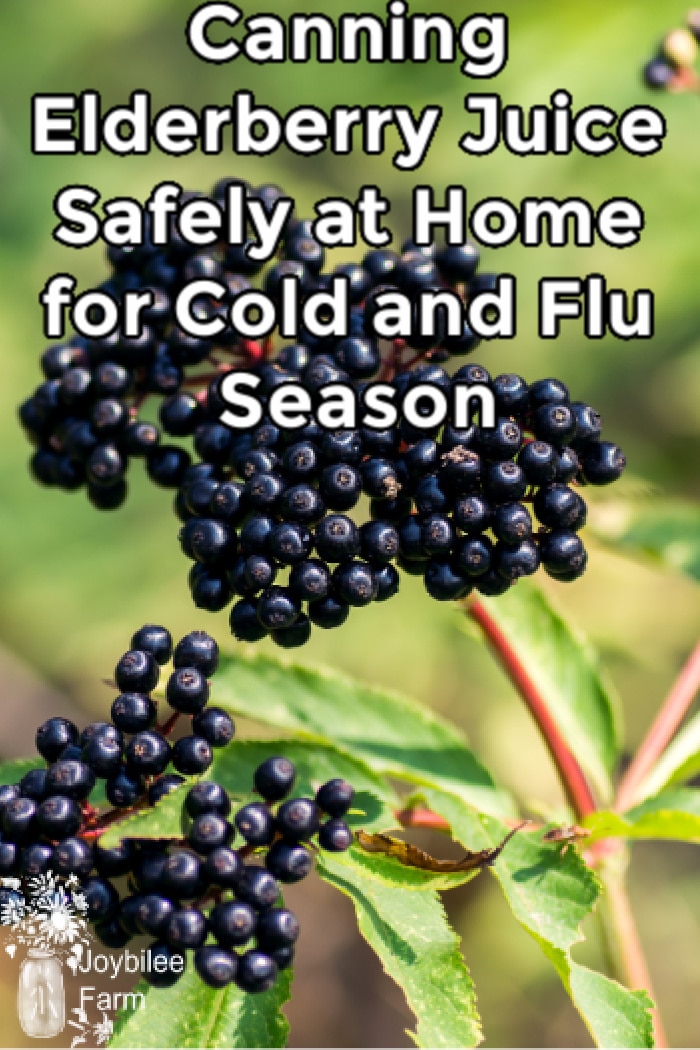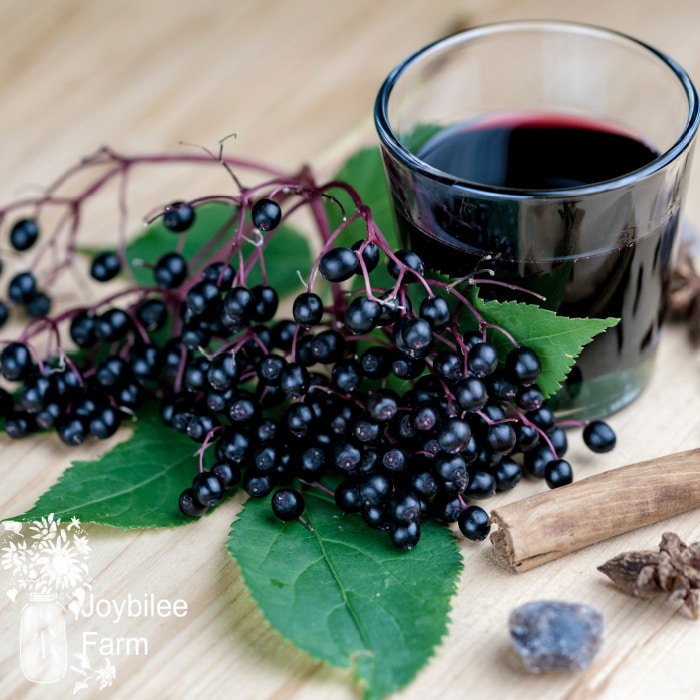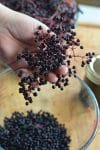
Soil pH affects the pH of the fruit

Glass of fresh elderberry syrup with cinnamon stick, brown sugar, star anise and elderberries on a wooden kitchen counter
Canning Elderberry Juice Safely at Home
Print
Canning Elderberry Juice at Home Safely
- Yield: 4 pints 1x
Description
Some elderberry varieties have a higher pH than the 4.6 recommended for safe water bath canning at home. Increasing the acidity of elderberry juice can improve the safety of home canned elderberry juice, jam, and jelly to prevent the growth of botulism.
Ingredients
- 8 cups elderberry juice
- 4 tablespoons lemon juice, bottled or 1 teaspoon citric acid
- sugar to taste (optional) (Honey may be added before serving)
Instructions
- Extract elderberry juice from fresh or frozen elderberries. Add 1 tablespoon lemon juice or 1/4 teaspoon citric acid per pint jar. Pour hot juice into jars over acid additive.
- Heat canning jar lids in a saucepan of simmering water to soften seal or treat them according to the manufacturers directions. Clean jar rims with clean towel to remove residual juice. Remove from pan, and place on jar rims of pint jars. Complete seal by screwing on the canning jar rings.
- Place in water bath canner. Fill canner with hot water to cover jars by 2 inches. Bring to a gentle rolling boil over medium heat. Boil for 10 minutes. Turn off heat. Let jars settle for 5 minutes before removing from the canner.
- Remove jars using a jar lifter, and place on a clean towel on the kitchen counter. Allow to cool naturally. This will complete the seals.
- Seal is completed when the top doesn’t give when pressed with your finger.
- When jars have cooled completely and seals have completed, remove the rings and wash the jars. Label and date the jars before storing in a cool, dry place.
- You can use this juice to make elderberry syrup, elderberry jellies, or other elderberry dishes.
Per pint:
- add 1 tablespoon of bottled lemon juice or
- 1/4 teaspoon of citric acid or
- 2 tablespoons cider vinegar



Personally I would not can anything with honey. I add a lot of bottled lemon juice to mine for safety but I don’t use anything to sweeten it until it is opened. Then I warm it to about 110 degrees and add equal parts elderberry decoction and raw honey. Mix and refrigerate. The raw honey should preserve it for months.
You won’t get elderberry juice from dried elderberries. Usually we use 1/2 cup of dried elderberries for 2 cups of elderberry syrup. I would not pressure can the syrup. Heat will spoil some of the beneficial compounds in the honey.
i love to can but have never canned elderberry, I plan on pressure canning (just in case) my question is how many dried elderberries do i need to get to get 8-10 cups of juice? also, how many pints does your recipe make? i did not see that (sorry if its there)
Hi, Elizabeth
When we can tomatoes we add 1/4 cup (4 tablespoons) of 5% vinegar per quart jar. Since elderberries have the same pH as tomatoes it makes sense that the addition of 2 tablespoons of 5% vinegar per pint or 4 tablespoons (1/4 cup) per quart would be adequate to acidify elderberries as well. If you want to be extra sure, test the pH of your syrup. If it is 4.6 pH or lower you will be fine. This is the mark that defines low acid foods.
Hi there. I have some freshly made elderberry syrup that I’m wanting to can to be shelf stable. Is this possible? It’s made with water, elderberries, ACV with the mother, some herbs, and honey. I’m hoping that the addition of the ACV would be enough acidity to be able to can, but not sure? Is there something I could add to it to make it safe to can if it’s not already? Thanks for any insight!